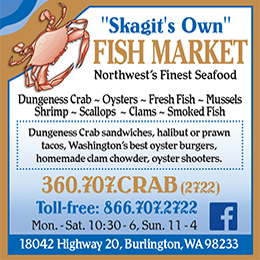Rural rebirth in Concrete?
By Jason Miller
posted 5.11.10
A flurry of redevelopment and new businesses has many wondering if Concrete is staging a comeback—and how long it will last.
Concrete has foundered economically since the mid-1960s, when its namesake cement plants closed. With its economic driver gone, the town turned to logging and jobs with the two power companies in the area: Puget Sound Energy and Seattle City Light. A smattering of county and WSDOT jobs, plus downriver employment for those with reliable transportation, filled in some of the gaps.
Concrete has never fully bounced back from the hit it took 40 years ago. And for some, that’s just fine. Economically depressed areas tend to move at a slower pace. And Concrete’s built environment has been left largely unscathed by the suburban sprawl pattern that more affluent communities across the U.S. are now trying to mitigate.
Still another facet to Concrete’s suppressed economy—and the recession that the entire country continues to weather—is its potential to actual spur new development and business start-ups.
“A lot of people start businesses in a recession. It’s not uncommon; we’ve seen this before,” said Don Wick, executive director for the Economic Development Association of Skagit County (EDASC).
Concrete citizens George Theodoratus and John and Rob Tygret would agree. Theodoratus is building a new, larger home for Valleys West Realty, because “materials costs have never been this low and probably won’t be again for a long time,” he said. The Tygrets opened Eagles In Flight, a motorcycle sales and service business, only after land and property values dropped into their price range.
Another, less tangible, component to the surge in business start-ups is hope. Some attribute Concrete’s changing attitude and subsequent revitalization to the April 2009 “Imagine Concrete” visioning workshops, an effort that was last successfully undertaken in Concrete 14 years ago.
Facilitated by then-graduate student Eric Archuletta, Imagine Concrete generated a grassroots movement that identified immediate and long-term changes and improvements that could happen in town. The initiative’s steering committee and task forces continue to transform the ideas from the workshops into reality.
Will it last?
Concrete has seen its share of failed business start-ups. The Red Cedar Inn, for example, struggled for several months before finally closing its doors in April.
Were these businesses mis-managed into oblivion or was there simply not the critical mass of customers needed to support them?
If the latter turns out to be true, the hori-zon could look better. The local census conducted in March by the Town of Concrete revealed its in-town population had dropped to 719, with a startling 67 vacant homes (only five residences were nonresponsive). During the summer months, new businesses should fare well. But come winter and the closing of Washington Pass, the smart money will be on those businesses that market themselves effectively to larger population centers that aren’t a 45-minute drive away; read, Sedro-Woolley.
Val Stafford recognizes the potential in these new businesses and hopes the community will get behind them. Stafford is the president of the Concrete Chamber of Commerce; she and her husband, Fred West, own the Concrete Theatre in Concrete’s Town Center.
“The business climate has changed in Concrete. More of us are willing to invest in the town,” Stafford said. “It’s up to all of us to support the local businesses, to make sure they know we appreciate their investment in our community. They’re creating jobs and providing families with goods and services closer to home. Instead of being critical, we should be helping all our businesses be successful. Every one of the new owners I’ve talked to is open to suggestions and ideas.
“It’s heartening to see new businesses being opened by people with plans and passions. I think they’re here because they really care about building a healthy, vibrant community, to serve tourists and the local residents. It’s critical, when you’re in a tourist destination, to also meet the needs of the people who are here year-round. That can be challenging.”
Don Wick would concur. But for Wick, passion is arguably more important than business acumen.
“Most people in the start-up phase don’t have a background in business, they have a love and passion for what they’re doing—I think that’s more important. The other stuff you can learn,” he said.
Stafford sees change already. “There’s a lot more communication between groups and businesses. It really helps to have the Concrete Herald back, and efforts like Imagine Concrete have created a new, positive energy. That’s made a significant difference in the perception people have of our town. We are not the dusty little town we used to be,” she said.






